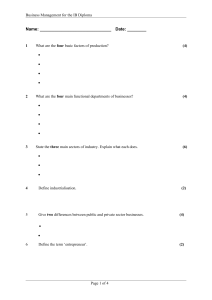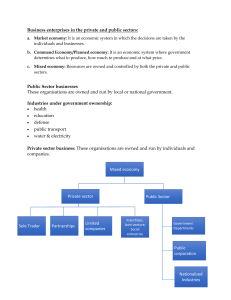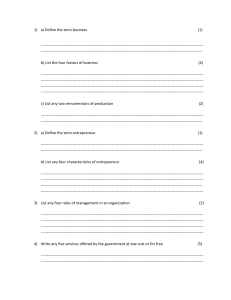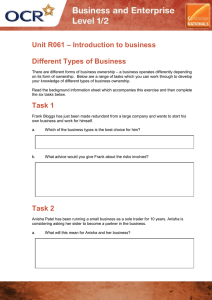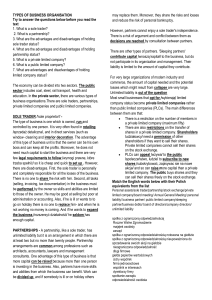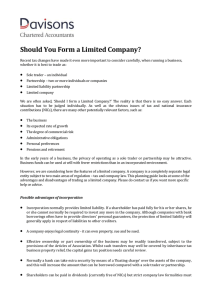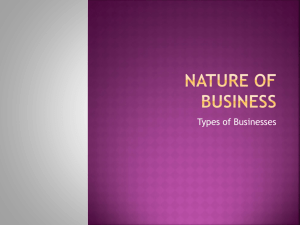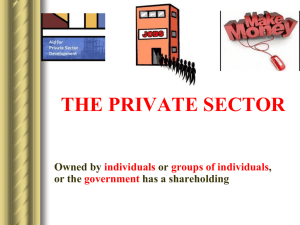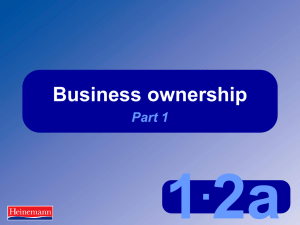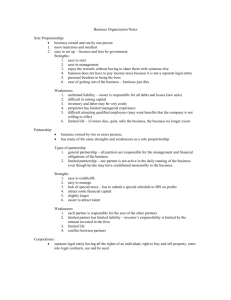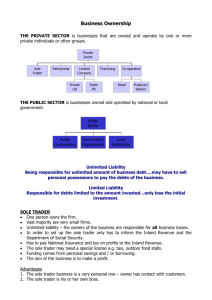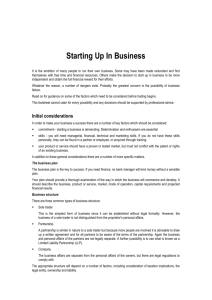IB Business Management Ch 2 Worksheet Mark Scheme
advertisement
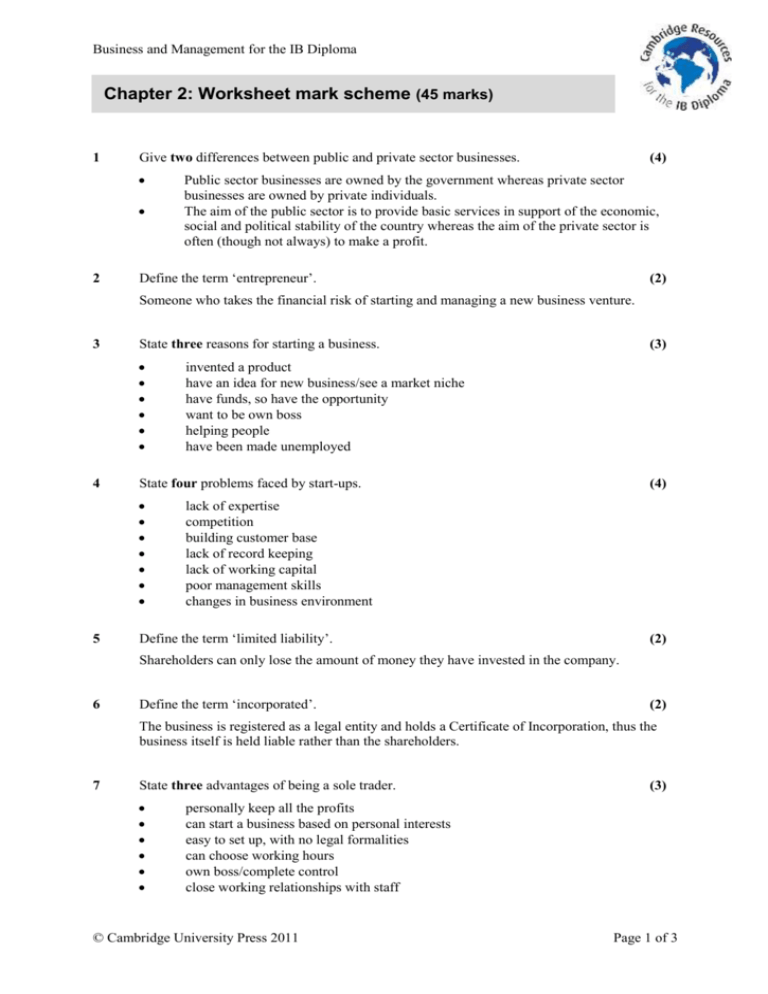
Business and Management for the IB Diploma Chapter 2: Worksheet mark scheme (45 marks) 1 Give two differences between public and private sector businesses. 2 (4) Public sector businesses are owned by the government whereas private sector businesses are owned by private individuals. The aim of the public sector is to provide basic services in support of the economic, social and political stability of the country whereas the aim of the private sector is often (though not always) to make a profit. Define the term ‘entrepreneur’. (2) Someone who takes the financial risk of starting and managing a new business venture. 3 State three reasons for starting a business. 4 invented a product have an idea for new business/see a market niche have funds, so have the opportunity want to be own boss helping people have been made unemployed State four problems faced by start-ups. 5 (3) (4) lack of expertise competition building customer base lack of record keeping lack of working capital poor management skills changes in business environment Define the term ‘limited liability’. (2) Shareholders can only lose the amount of money they have invested in the company. 6 Define the term ‘incorporated’. (2) The business is registered as a legal entity and holds a Certificate of Incorporation, thus the business itself is held liable rather than the shareholders. 7 State three advantages of being a sole trader. (3) personally keep all the profits can start a business based on personal interests easy to set up, with no legal formalities can choose working hours own boss/complete control close working relationships with staff © Cambridge University Press 2011 Page 1 of 3 Business and Management for the IB Diploma 8 State three disadvantages of being a sole trader. 9 unlimited liability often face intense competition often have to do jobs one has no expertise in difficult to raise extra capital long hours when sole trader dies, the business ends too State three advantages of forming a partnership, rather than being a sole trader. 10 (3) (3) split the work shared decisions combine expertise extra capital What is the name of the document that partners in a business are advised to sign? (1) Deed of Partnership 11 State three advantages of converting an unlimited liability business to a private limited company. 12 (3) limited liability continuity after death of founder can sell shares and raise capital risk transferred from investors to creditors more likely to raise finance What is the difference between a public sector business and a public limited company? (2) Public sector business is owned by government whereas a plc is owned by private individuals and trades its shares on the stock exchange. 13 Give three advantages of converting a very large limited company to a plc. 14 raise extra finance easier future access to finance ease of buying and selling shares Give two disadvantages of becoming a plc. (3) (2) may lose control of business/ holdings diluted subject to many stock market rules expensive to do must publish financial information share prices fluctuate risk of takeover directors influenced by short-term objectives of major investors © Cambridge University Press 2011 Page 2 of 3 Business and Management for the IB Diploma 15 Define the term ‘pressure group’. (2) Non-profit organsation which aims to change the behaviour and decisions of organisations or government. 16 State three ways in which pressure groups may try to achieve their goals. 17 (3) publicity via media coverage public demonstrations or rallies influence consumer behaviour presentations lobby government Define the term ‘social enterprise’. (2) A business that makes money in socially responsible ways and uses most of the surplus to benefit society, though it is not a charity. 18 What is a command economy? (1) Where economic resources are owned, planned and controlled by the government. © Cambridge University Press 2011 Page 3 of 3
